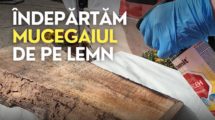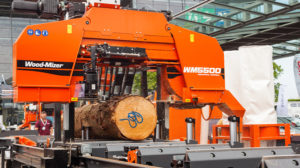The European Union has taken an important step in the fight against global deforestation by adopting the EU regulation on deforestation (EUDR). This ambitious legislation aims to reduce the impact of European consumption on global forests by imposing new obligations on companies selling certain products on the EU market.
What is the EUDR and what does it aim to achieve?
But what is the EUDR? Think of it as a guardian of the world's forests, standing at the gates of Europe. This guardian has a clear mission: to ensure that products entering Europe have not contributed to the destruction of global forests. Whether it's a cup of coffee, a piece of chocolate or a piece of furniture, the EUDR wants to know the story behind every product.
In essence, the EUDR is a regulation adopted in 2023 that lays down strict rules for the import and marketing in the EU of products associated with deforestation risk, such as:
- Beef
- Cacao
- Coffee
- Palm oil
- Rubber
- Soy
- Wood and wood products
The main objectives of the EUDR are:
- Minimizing the EU's contribution to global deforestation and forest degradation
- Reducing associated greenhouse gas emissions
- Tackling biodiversity loss
How does the EUDR work?
The regulation introduces a "due diligence" system for companies placing targeted products on the EU market. It requires companies to become detectives of sorts. Each product must come with a full story - where it came from, what route it traveled and, most importantly, whether it has caused any forest destruction along the way. It's as if each product has a green passport, which must be checked before it enters Europe.
Specifically, companies must:
- Gather information on the origin of products, including GPS coordinates of production sites
- Assess the risk of products coming from deforested areas
- Take measures to mitigate identified risks
- Submit a due diligence statement before placing products on the market
Products can only be marketed in the EU if they are "deforestation-free", i.e. produced on land that has not been deforested after December 31, 2020.
Member State authorities will carry out checks to verify compliance. Penalties are foreseen for non-compliance, including fines of up to 4% of annual EU turnover.
Implementation steps and deadlines
The implementation of the EUDR is not a one-off event, but a journey with several stages. Imagine a map with a marked route, where each point represents a crucial step in this ambitious initiative. As Europe prepares to embark on this journey, companies, governments and communities around the world are packing their bags for a journey that promises to transform the landscape of global trade. Each stage of this journey brings new challenges, but also opportunities for innovation and collaboration:
- June 2023: Regulation enters into force
- December 2024: Enforcement obligations for most companies
- June 2025: extended deadline for micro and small businesses
- June 2028: Implementation of an electronic interface for data exchange between authorities
Implications and challenges
EUDR represents a major change for producers and global supply chains. Imagine a farmer in a remote corner of the world who has been growing cocoa for generations. Now, suddenly, he is being asked to provide detailed information about his land, using technologies he may never have seen. Or think of a company that has to trace the origin of every coffee bean in its blend. It's like having to find a needle in a haystack, only the needle is a specific tree in a vast forest.
Anticipated implications and challenges include:
- Additional costs for companies related to traceability and due diligence
- Possible reconfiguration of supply chains to avoid high-risk areas
- Impact on producing countries, especially developing countries
- Need to develop monitoring and certification systems
- Potential price effects for European consumers
- Challenges in verifying the origin of products and applying the Regulation
Why are the US and China reluctant?
As Europe builds this new green fortress, not everyone is thrilled. Major powers like the US and China are watching with concern. For them, the EUDR is like a new player changing the rules in the middle of the game. They fear the new rules could make it more difficult and costly for their products to enter the European market. As major producers and exporters of EUDR products, the US and China have expressed concern about the economic impact of the EUDR. The main reasons for their reluctance include:
- Additional costs to adapt to new requirements
- Risk of losing access to the EU market for some products
- The need for rapid restructuring of supply chains
- Concerns about EUDR's compatibility with international trade rules
According to diplomatic sources cited by Reuters, the US and China have called on the EU to delay EUDR implementation in bilateral talks as early as 2022. Also, according to a Financial Times article, these countries have voiced objections to the EUDR at the World Trade Organization, arguing that the regulation could violate global trade rules. The US even reportedly formally requested the European Commission in June 2024 to delay the implementation of the EUDR, according to Reuters.
Analysis and open questions
As EUDR begins its mission, the whole world is watching. Some see him as a brave hero, others as a rebel disrupting the established order. Whatever the perspective, one thing is clear: EUDR has opened a new frontier in the fight for a greener future.
What is certain is that the EUDR represents an ambitious and unprecedented EU approach to tackling global deforestation. While the intentions are laudable, implementation raises a number of questions and challenges:
-
Effectiveness of EUDR implementation in the context of complex global supply chains:
Modern supply chains are extremely complex, often involving dozens or even hundreds of suppliers in different countries. The effective implementation of EUDR requires tracing the origin of products down to the land parcel level, which is a significant logistical and technological challenge.
Key questions:
- How will companies be able to obtain and verify accurate information about the origin of products in multi-level supply chains?
- What technologies (e.g. blockchain, satellite imagery) can be used to ensure traceability and what are their limitations?
- How will it ensure data integrity and prevent falsification of information along the supply chain?
-
The real impact on global deforestation rates:
Although the EU is a major player in the global market, it accounts for only a fraction of global consumption. There is a risk that the EUDR could lead to the diversion of deforestation-related products to less regulated markets without significantly reducing the overall deforestation rate.
Aspects to analyze:
- What is the EU's share in global consumption of the products concerned and how significant is the impact of this measure likely to be?
- Are mechanisms in place to monitor potential 'leakage' of problematic products to other markets?
- How can the EU encourage the adoption of similar standards by other major economies to maximize global impact?
-
Impact on small producers and vulnerable communities:
Implementation of the EUDR may have unintended consequences for small producers and communities in developing countries, who could be excluded from supply chains due to the costs and complexity of compliance.
Questions to explore:
- What concrete support measures are foreseen for small producers?
- How can it be ensured that the EUDR does not exacerbate existing inequalities in global supply chains?
- Is there a risk that EUDR could encourage the concentration of production in the hands of big corporations at the expense of small farmers?
-
Compatibility with international trade rules:
The EUDR imposes significant requirements for access to the EU market, which could be interpreted as a non-tariff barrier to international trade.
Legal and diplomatic issues to consider:
- How does EUDR align with World Trade Organization principles?
- Are there precedents for such environmentally-based measures in international trade?
- How will the EU handle potential trade disputes and accusations of protectionism?
-
Impact on competitiveness and potential for global take-up:
Implementing the EUDR could create short-term competitive disadvantages for European companies, but it could also stimulate innovation and set new global standards.
Analysis points:
- How will the EUDR affect the competitiveness of European companies in the global market?
- Is there potential for EUDR to become a model for similar regulation in other jurisdictions?
- What strategies can the EU adopt to encourage other major economies to follow its example?
-
Balancing environmental protection and product affordability:
EUDR could lead to higher costs for some products, raising questions about the impact on consumers and potential social consequences.
Things to consider:
- How will the EUDR affect the prices of the products concerned on the European market?
- Is there a risk that certain products could become inaccessible to certain categories of consumers?
- What measures can be taken to mitigate potential negative effects on consumers?
-
Adapt the deadline of December 31, 2020:
The choice of date raises questions about the balance between the ambition to combat deforestation and the practical realities of implementation.
Reflection points:
- Is this date ambitious enough to bring about the desired change?
- How does this date affect economic operators that have made recent investments?
- Should a tiered or differentiated approach by region or product type be considered?
In conclusion, the EUDR marks an important moment in global efforts to combat deforestation, but its success will depend on effective implementation and the ability to generate a broader international movement. It remains to be seen whether this ambitious initiative will strike the right balance between environmental protection, economic development and international trade.
So the next time you sip a cup of coffee or enjoy a piece of chocolate, remember that behind these simple pleasures is a complex story about forests, people and a Europe determined to make a difference.




































Add comment